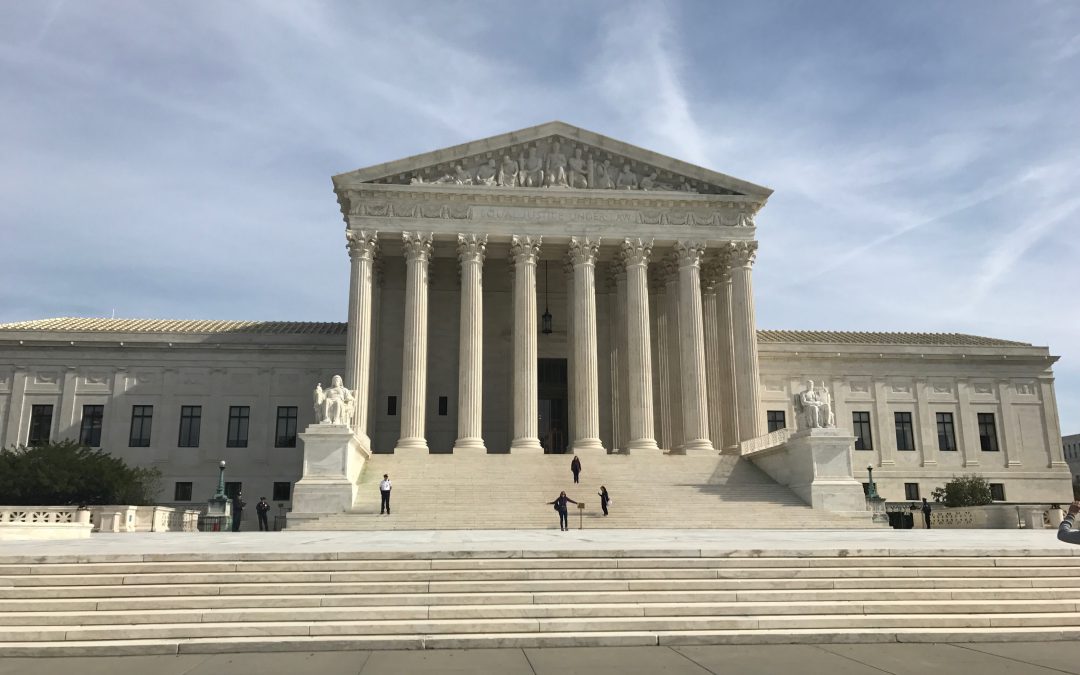WASHINGTON — The Supreme Court heard oral arguments on Wednesday about a deaf student who was denied a high school diploma from a Michigan school district that failed to provide him with a qualified ASL interpreter.
The court will decide if the plaintiff, Miguel Perez, and his family exhausted all of their administrative remedies before filing a discrimination claim against Sturgis Public Schools in federal court and are entitled to financial compensation after settling with the district.
“For 12 years, Sturgis neglected Miguel, denied him an education, and lied to his parents about the progress he was allegedly making in school,” Roman Martinez, Perez’s lawyer, said in Court on Wednesday. “Congress didn’t punish kids for saying yes to favorable IDEA settlements.”
Perez’s family immigrated from Mexico in 2004 and was never provided a Spanish-language interpreter to inform them about their son’s educational status. Although Miguel made the honor roll every semester, he never learned how to read and write.
“The parents really didn’t have an understanding of what their rights were,” Pete Wright, founder of Wrightslaw, a special education law and advocacy group, said. “There’s nothing that reimburses the kid for all the damage that he’s suffered from never really being properly taught. It’s a classic example of what it is, not a free, appropriate public education at all.”
Shira Wakschlag, Senior Director of Legal Advocacy and General Counsel at The Arc, a nonprofit for people with intellectual and developmental disabilities, says that the purpose of these laws is for students with disabilities to have an avenue for relief if their rights are denied in the school environment.
“A settlement that is agreed on by both parties is always the goal,” Wakschlag said. “So to say that that doesn’t constitute exhaustion under the law, when the law promotes settlement would really be against public policy and against the meaning of the statute.”
Perez, who was denied the proper ASL services from the school, went through due process with the Individuals with Disabilities Education Act and Americans with Disabilities Act claims. Still, the ADA claims could not be heard at the due process level and were subsequently dismissed. The Michigan Department of Education settled the IDEA claims and agreed to pay for Perez’s attendance at the Michigan School for the Deaf.
“Exhausting a non-IDEA claim means obtaining an administrative decision from an educational expert, just as an IDEA plaintiff must do before going to court,” Shay Dvoretzky, Sturgis’ lawyer, said in court. “That’s why Mr. Perez’s improper new argument that ‘settles’ equals ‘exhaustion’ is incorrect. An IDEA plaintiff cannot sue after settling.”
However, Perez is seeking justice for his unequal access to education and compensatory damages for emotional distress under the ADA lawsuit. The lower court held that Perez gave up his right to sue when he settled the IDEA claims.
“The plaintiffs are really asking the court to protect students with disabilities, and ensure that the families of these students are able to pursue the full range of civil rights remedies directly in federal court,” Wakschlag said. “And this is essentially preventing them from doing that and creating more obstacles.”


